Davis at large made Reagan feel at home
The late Derek Davis was often a scene stealer, something he’d joke was probably inevitable given his size.
Holywood, County Down’s best-known export before Rory McIlroy, all-rounder Davis was already a familiar face here when he made himself known to Irish-Americans the world over on the June Bank Holiday Sunday of 1984.
Appointed MC for Ronald Reagan’s visit to Ballyporeen — traced as being the U.S. President’s ancestral homeplace — Davis was in his element; this despite the fact that, following a month-long drought, the heavens decided to open for the two hours the Illinois native was feted in Ireland’s Golden Vale.
The unassuming former B-movie actor might have been the world’s most powerful politician bar none but he was almost overshadowed by Davis as the pair swapped pleasantries on the rain-splattered platform.
In arranging the visit, the Department of Foreign Affairs needed someone to hold the stage and work the teeming crowd. With their first choice, Andy O’Mahoney, having politely declined, the local organising committee turned to Davis, who was popular and — after clearing it with his RTÉ bosses — available.
The civil servants offered the amiable newscaster £25. He wanted £2,500. They eventually settled on £200. The State got the bargain, just as the national broadcaster did during his ‘Live at Three’ heyday — the “yellow pack” era before the salaries paid to the Montrose elite went off the morality scale.
If Davis was miffed by the compromise he didn’t let it show, combining “waffle” and running commentary to keep the hordes and international press corps entertained as they waited impatiently for the in-demand guest of honour.
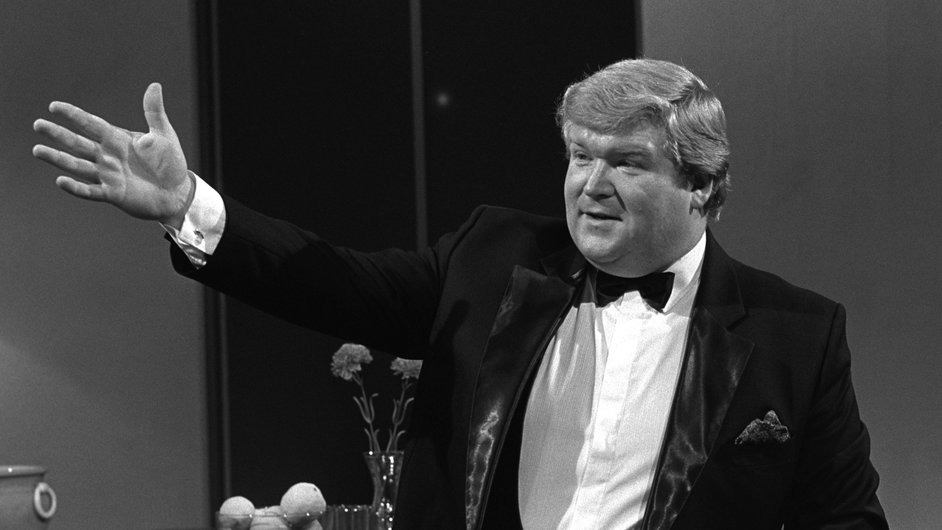
With his customary bonhomie and paunchy punchlines, he kept Reagan smiling and had both the live and TV audience in stitches, typically at his own expense — suggesting the reason he got the gig was “because I afforded the best cover your security detail could find”.
It wasn’t all ‘céad míle fáilte’ and chuckles, mind. There was considerable tension in the air too. A journalist by profession, Davis was fully tuned in to the strong anti-American foreign policy sentiment here; a chorus led by the Catholic bishops and the commentariat’s criticism of what was happening in Central America with the blessing of the White House.
Amid all the historic significance and understandable hoopla, some six hundred protesters had been kept at bay four miles outside the village. Among the conscientious objectors was one Michael D. Higgins, then a Labour Party Senator from the West of Ireland, where Reagan’s reception had been decidedly muted.
Supported by a massively expensive air escort and motorcade (including a mobile operating theatre), the presidential posse arrived in high-alert mode. The paranoia was palpable. The attitude of the Secret Service, especially towards the gardaí, didn’t help; albeit the feeling was pretty mutual. “In a very short time I had sussed that the atmosphere between the Americans and the Irish was really poisonous,” Davis wrote in an Irish Independent supplement piece marking the Obama visit to Offaly in 2011.
Given that Reagan had survived an assassination attempt in Washington three years earlier that left him with serious gunshot wounds, the Secret Service was now nervous to the point of neurosis. “Charm was not one of their gifts and their relationship with people on the ground was very poor,” Davis attested.
Their heightened anxiety wasn’t altogether unjustified. Almost three decades on, for a 2012 Tipp FM documentary called ‘A Rainy Day in June’, Davis revealed how “some nutter”, acting with menaces, somehow breached the ultra-tight security cordon and, on the pretence of wanting to shake hands, tried to harm Reagan with a concealed piece of glass; presumably not the Waterford variety.
Of that incident, Davis said: “Anecdotally, we were told there was a bit of a kerfuffle up the main street… At one point, Reagan was completely surrounded by secret servicemen all in identical raincoats — identical to his. They were all of a certain height, all of a certain build… and they milled around him. Interestingly Nancy [Reagan’s wife] was left on the outside of that ring.”
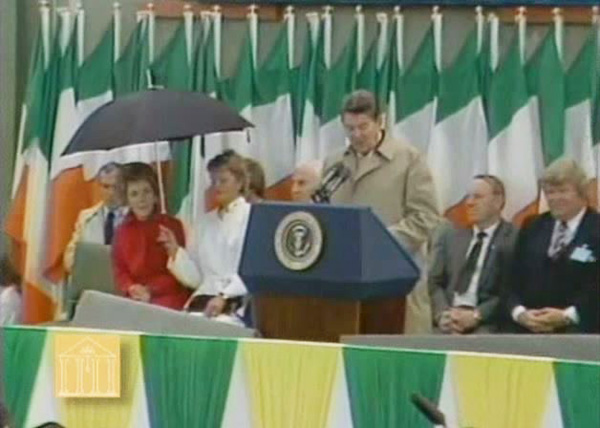
Managing to maintain his professionalism in such an intense scenario took a bit of doing; even for someone who cut his teeth as a BBC reporter at the height of the Troubles up North. But humour remains a great grounding force.
“I’m sure you’ll be interested to know, Mr. President,” Davis wisecracked, “that soil from the Reagan farm is selling at 50 pence a packet. Perhaps if they knew that they would never have left” — a light-hearted reference to Ronnie’s great-grandfather, Michael Regan.
At another point in the proceedings, after local county councillor Ned Brennan presented the Leader of the Free World with a huge and heavy family coat of arms, Davis — noting Nancy’s concern for her still-healing husband — took the weight and quipped: “This is to be put on the wall, it’s not for wearing around the neck, Mr. President.”
When it came to Reagan’s turn to speak, introduced to raucous applause, he soon dispensed with his handlers’ awful stage-Oirish script and opted to go off-the-cuff; delivering a speech that was, to Davis’s mind, “warm, funny and well-judged… The crowd loved him. It was the high point of his Irish visit.”
Afterwards an aide passed on a message from the president’s party to the master of ceremonies: “Tell Bob Hope he did a great job, thanks.” Not everyone was best pleased, though, with some RTÉ colleagues openly suggesting the host had sold out — opinions quite possibly rooted in jealousy rather than ethics.
However, Reagan, ignoring the angry insults and intent on claiming his heritage, continued to soak it all in, including a pint in O’Farrell’s pub, partly renamed ‘The Ronald Reagan Lounge’ for the occasion.
Whatever about Peter Barry, our then-Foreign Affairs minister, who “never cracked a smile for two hours – the Americans loved it,” Davis observed.
Indeed, such was the impression Derek himself had made that a couple of U.S. television companies wanted to explore “broadcast opportunities”. But the angling enthusiast put his young family first and cast aside the chance to become a bigger fish across the pond.
Whatever about Peter Barry, our then-Foreign Affairs minister, who “never cracked a smile for two hours – the Americans loved it.”
Derek Davis
Privately self-conscious about the weight ‘problem’ that in many ways unfairly defined him — his size was cited in an ill-advised attempt to oust him from the schedules in 1986 — Davis was no dumb blond, with plenty of brain to go with the brawn. Even if he admitted “a flexible conscience” was required to do his job at times.
He proved capable of turning his hand to anything across the media spectrum, notwithstanding that some of the shows he was lumbered with by RTÉ’s ever-inconsistent light entertainment heads fell flat. Not to mention how ‘Double D’ was sorely under-utilised once he reached middle age.
Apart from his warm and amiable nature (belying a Bangor-bred inner steel) his primary asset was that effortless textured tone: a talent that couldn’t be learned, imitated, or, in truth, bettered. Gab-wise, he was gifted.
Averting one’s attention from many of today’s brash, ubiquitous TV/radio ‘stars’ — a breed with zero charisma and less authenticity, who insist on accompanying every inane syllable with their own canned laughter — it’s easy to see why so many people of a certain age and wit used the word ‘great’ about Davis upon his sad and sudden passing at the age of 67.
Reagan, son of an Irish-American orphan, described himself that afternoon in rural South Tipperary as a common labourer whose forebearers were buried in paupers’ graves. Another skilled in self-deprecation, Derek Davis, too, never got ideas above his station.
He was just naturally larger than life. And his life was full.
Published in Ireland's Own, 2015
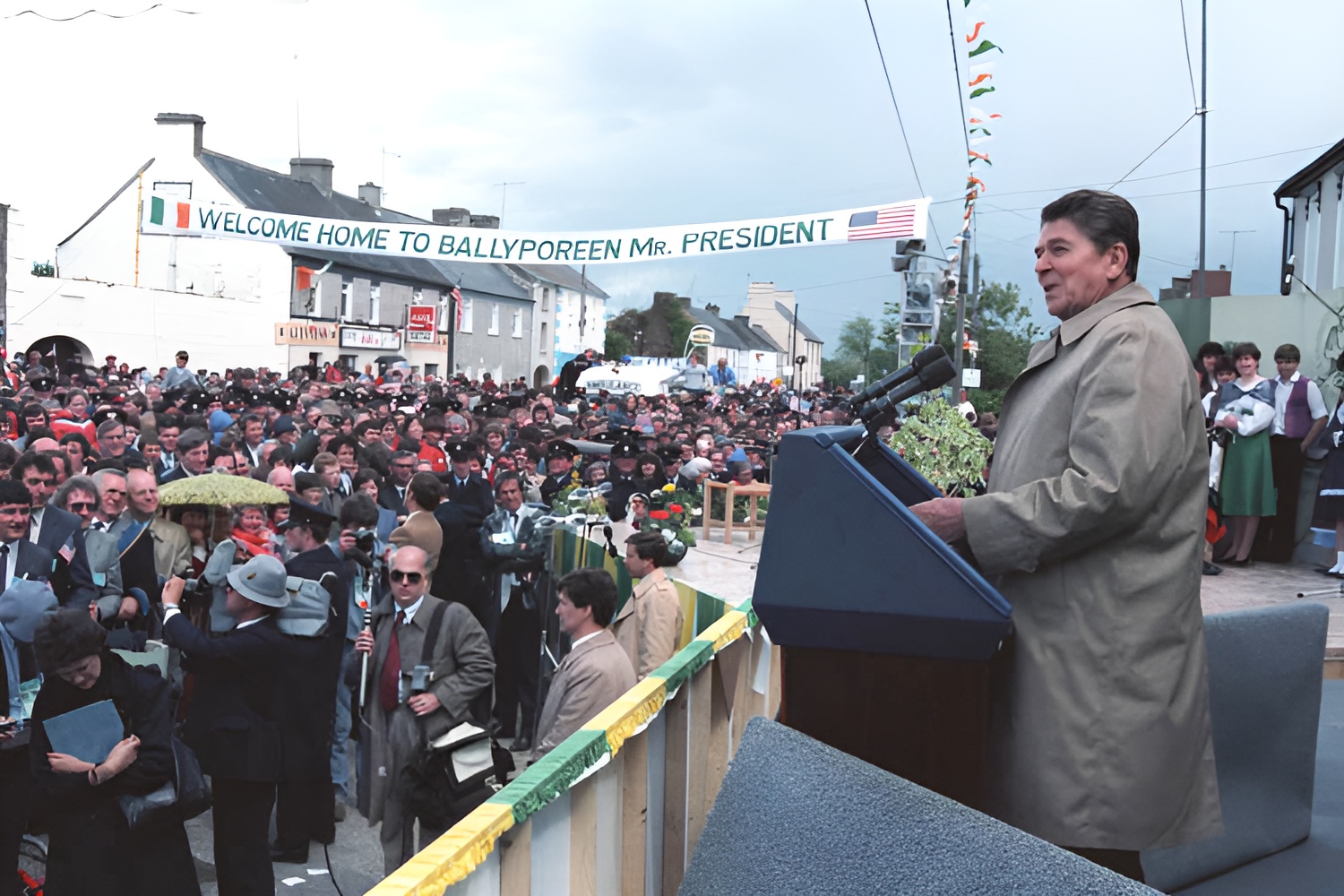

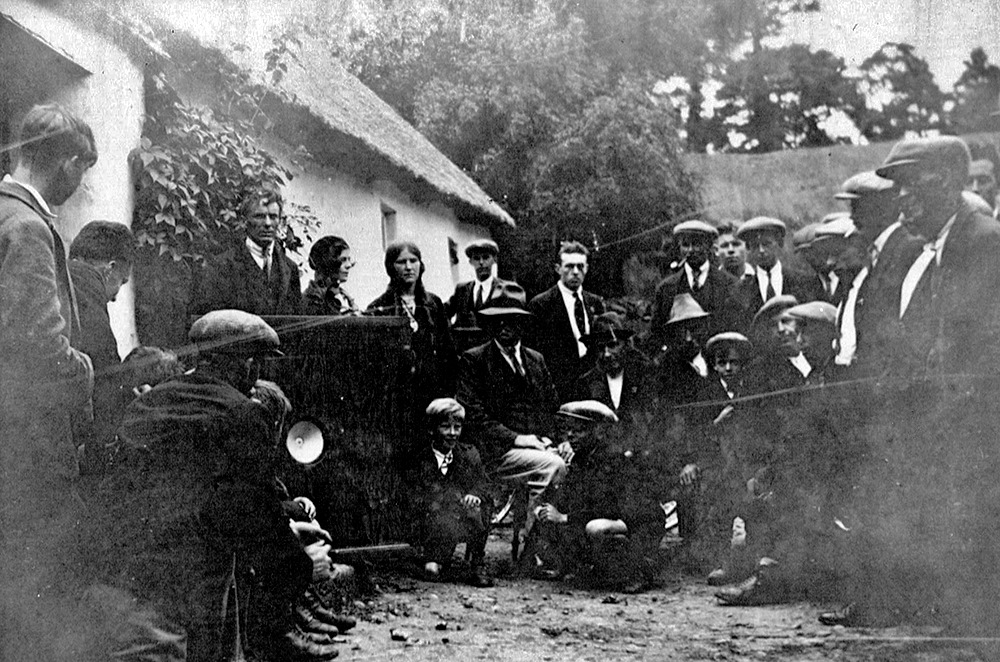

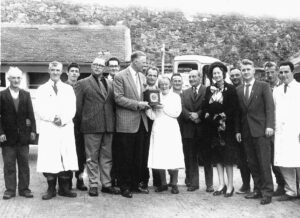


Post Comment